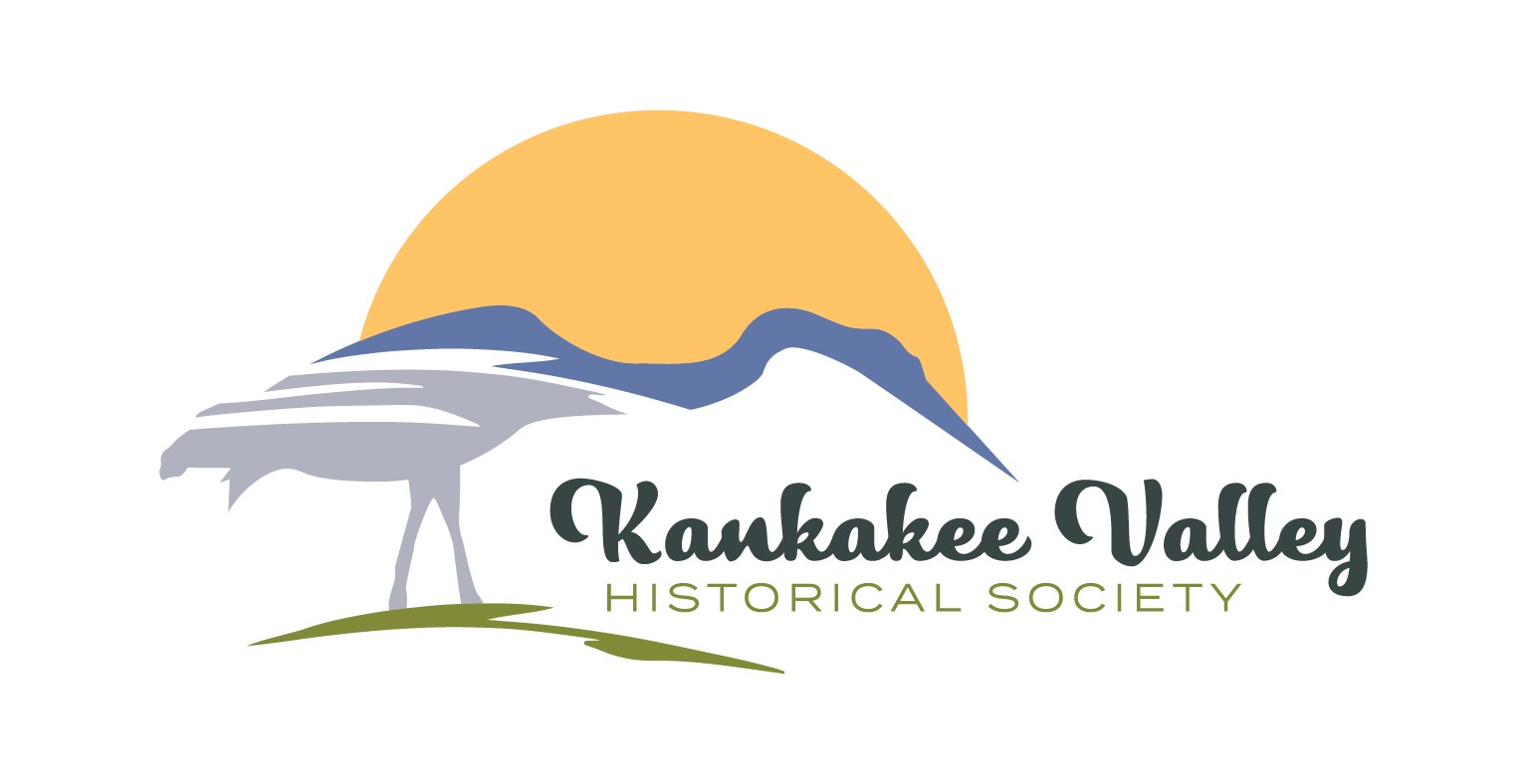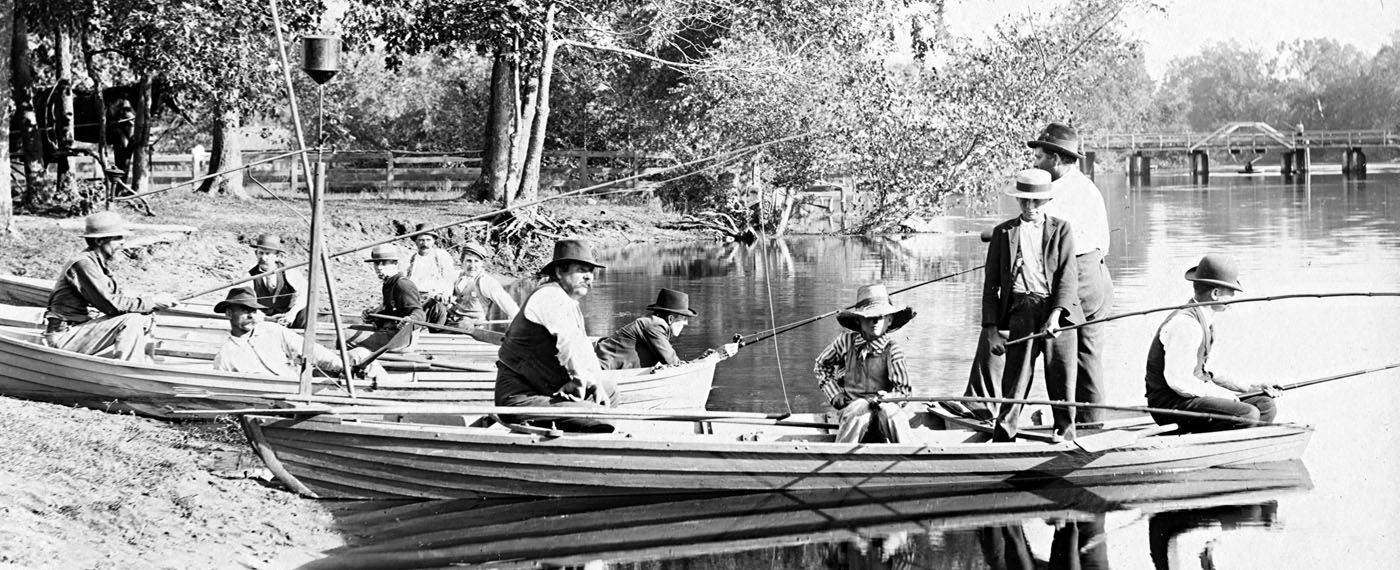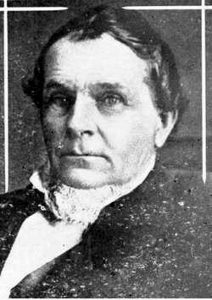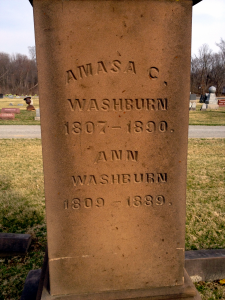The first well-kept diary of a traveler on the Kankakee was that by Cornwall Washburn in 1831. Through the kindness of his granddaughter, Miss Gertrude Hull of Milwaukee, a copy was made for the Society of Pioneers. “We had no one but ourselves to care for,” wrote young Washburn in June of that year. “We were headed for the Des Plains country to settle, and we are convinced that it will not do to pay $5 a day to have our baggage transported, while we walked along beside the wagon, at the rate of 20 miles a day.”
The beginning of the Washburn journey was presumably a Michigan town named Mottville. The diary continues: There are seven of us in the party, and we brought two spacious dug-out canoes. On the morning of June 1st, we lashed the two together end to end, put our trunks and baggage on board, and set sail with a red flag flying down the St. Joseph River. Toward South Bend the river is a delightful stream. We are in good spirits and with high expectations — and we went with great rapidity.
By noon we had passed several houses, but being ambitious and wishing to profit by all the sunlight, and not doubting that we would find other houses, we passed by, until darkness approached without us discovering any other dwellings.
All hope of finding a house for shelter was now lost; for it was so dark we couldn’t see if there was any. Therefore we went ashore, kindled a fire, spread our buffalo robes on the ground and lay down upon them. Opening our umbrellas over our heads, we spent a quiet and restful night.
June 2. This morning at the first approach of light we started, and within a few hours we arrived at the south bend village where the St. Joseph turns. We had rigged up some sort of sails that made our progress better. We had apparently come about 60 miles, and actual sailing time is about 12 hours.
Here we had to hire some teamster to take our canoes and baggage some six miles to a stream called the Kankakee, which is in Indiana. In coming to this river we had to go through soft marshlands where the horses often mired, and we all had to assist in lifting them out.
In putting our boats in, we found it to be at first very small, shallow, and crooked; sometimes so narrow an active person could jump across. By two o’clock in the afternoon we were all ready to sail again, and soon made our way winding and turning toward every point of the compass. When night approached we were hardly out of sight of the starting point, and as by this time there was no place to land. We continued all night.
June 3. As we continued the stream became much wider and much deeper. We were surrounded by a desolate marshy country and frequently saw on the bank rattle snakes when we put our poles on the shore to push. Towards the middle of the day, we began to suffer with thirst as all the water we had was tepid and ill tasting marsh water, which was bitter from all its reptiles, animals, and decayed vegitation.
The party had only covered an estimated thirty miles in a direct route. Washburn mentions the ‘Lake’ prior to entering the broad English Lake.
The diary continues: In the afternoon it became very warm with a good deal of thunder and lightning and some little rain. Towards night we came to a little piece of dry land at a big bank on a neck of land between two lakes. We landed and went in search of water but without success. There were a few old Indian camps, but the well was worse than the river, in consequence of standing considerable time without cleaning. We searched about for some time, returning disconsolate and weary. So we got into our boats and proceeded.
In a little time we were really out of sight of dry land. We learned that we would be obliged to again stay on the water all night. It was at dusk when we saw a widening of the water, but thought it of little consequence. We thought we could make our way over it before dark, but as we proceeded we found the dimly lit shore ahead seemed to recede from us.
Clouds arose and we soon found ourselves in almost impenetrable darkness. In a little while, we were utterly lost on a great expanse of water and knew not which way to turn. At this time great hordes of mosquitoes and other insects descended upon us, but being provided with a little dry wood we built fires on the bow of each boat where we had built a clay and rock surface for just this purpose. The destruction which we made of the insects was something beyond description. The fire soon dispersed them and they fell in great multitudes all around us.
Although our fires kept us from being virtually carried off by these insects, they made a great deepening of the gloom around us.
The doleful sounds of bull frogs on every side, occasionally punctuated by the honk of a wild goose alarmed by our fire, made the night positively noisy. We were sailing or paddling furiously about, unaware of where we were going until it was proposed that we let the two boats drift, only keeping them in line. Thus we obtained and took the direction of the current. Although the water moved very sluggishly, we were able to ascertain the direction of the current. With the help of our oars we were soon out of this horrible place, but we went into one more dangerous.
We entered into a deep and wide stream of fast moving water. We rowed from side to side searching for a landing place, but found the water was bounded on either side by a sort of thatch-grass that grew to enormous heights and seemed at a little distance to be high banks.
As we sought a landing, the wind came up, blowing hard, and there was a great appearance of rain. The waves began running so high as to be dangerous, and we wished for a new day. Fortunately for us, the wind blew off into the distance and the rain stopped — it was only a trickle —so we proceeded carefully along in the dark. Our little Ark—for such it now seemed to us — moved slowly, until before long the long-wished for sun arose.
With the rising of the sun there came also a rising of the winds again and waves ran so high they seemed about to swamp the boat. Frequently they washed into our canoes. By exerting all our strength and all our skill, we were able to keep afloat and were soon driven westward with great velocity until we found ourselves in another narrow channel with high banks. About noon there arose a heavy thunder shower, furiously raining and hailing. We, of course, had no shelter but our umbrellas, which were of little consequence in such a storm.
Near sunset, as we were about to enter a piece of woods, we discovered we were coming into a still larger lake far exceeding anything we had yet seen — with waves foaming and running furiously.
Evidently this was the lower bulge of English Lake, which at that period was much broader than was pictured by surveyors a few years later.
The diary continues: The first proposal was to tie up to a tree and remain where we were until the storm should cease. But not knowing our distance from any civilization and being very short of provisions, we concluded to put out a little ways with the hope of proceeding, but being always prepared to hurry back into the wood-lined banks if such was unwise. We soon discovered that with some hard labor we could attain the leaward side and could sail along the bul-rushes without being endangered by the high waves. In this way we effected the needed passage and a little before dark on June 4, we found ourselves in a stretch of smooth water.
There being no chance of building a shore fire and not knowing to what specie of wild beast we might be exposed., and by now being somewhat familiar with sailing in the night, we concluded to go on — but before long we entered into a most singular place. I cannot fully describe it but at night it seemed to be a vast area of water to which we could discover no bounds, out of which grew numerous groves or bunches of trees — thus we were lost again, and once more had to let the tandem boats drift with the current. We eventually got through this place and found ourselves in a rapid stream formed by a narrowing of the river. We ran against breakers which we assumed were caused by some sort of massed fallen trees and vegetation, and perhaps stones, ahead in the water. We, of course, became alarmed for there was a definite danger there, but happily we discovered a shore which we made up to — only to discover it to be a wet prairie. As we edged along we were escorted by wolf howls following us along the banks. They seemed to come from different directions. None of us were accustomed to such and we were uncertain. As for me, I was much fatigued and slept quietly in the boat all through the night, while most of the others remained awake in fear.
June 5. This day we still sailed along the big expanse of water into a wilderness and a marsh country, seldom seeing any dry land, and having again to drink brackish river water all the day as our containers of water obtained up the river were now empty. At nightfall we ran out of the main channel and right among the trees. Here we were fortunate enough to find a little island or grove on which, though very wet, we succeeded in building a fire to keep off any wild animals, and we lay down in our boats to sleep.
This knoll, which is on the range line of Four West, was still in 1800 listed as a resting place by canoe travelers. Prof. Alfred H. Meyer of the Valparaiso University, in his report on the Kankakee in 1934, showed it as being a place of long abandoned wigwams. It evidently had long been a camping place. It is located just a mile east of the river’s most southern bend in Indiana.
On June 6, we started our journey with sad countenances and heavy hearts for there was no sign of us coming to a civilized country, and we were destitute of provisions. Only by accident did one of our party discover a small deer asleep along the grassy banks. We drifted silently by until one man stepped ashore, returned to the location, and killed the animal.
This was on dry land, the first we had seen for some time, and much was now turning in our favor. Here we camped, dressed the deer, made some bread, and had a delicious feast. We took what we thought we could eat before it spoiled and once more got into our boats, sailing onward.
In the afternoon we discovered some Indians on the bank abouy fifty yards back from the stream. They seemed to be young boys about sixteen or seventeen. There were probably four of them and one horse and several dogs. They eyed us very attentively and made some motions as we passed them which we did not understand. We had passed a fording place but they did not turn back but kept up with us from over the river. The place was at the northernmost bend in the Kankakee River and as we disregarded their motions one of the boys got on the horse and rode wildly off, while the others and the dogs turned back with great shouts. We anticipated that the boy on the horse had gone back to warn someone, and we feared they might be alarming the native countryside to come and attack us. Although we had been assured the Indians no longer attacked the whites, we seemed to be too far away from any semblance of civilization to have any local tribal rule apply —but fortunately we were happily disappointed.
Night soon approached, and we had indications that several Indians occupied sites in the locality, and still feared we might be molested so we remained within our boats and continued onward during the night.
On this particular night it became my regular turn to pilot the boat again. There was a moon at first but it soon went down — and then came a most odd and extraordinary light. The clouds were thick and dark all around except a little streak in the west — which was frequently directly before us, as our general direction was west. The odd light gave sufficient illumination so I could see a considerable distance ahead. We were not much surprised at the first showing of the light, thinking it was a sunset glow, but it continued on until after midnight when it finally began to grow dim. About this time we ran against several rocks that the light no longer pointed out, so we turned to the shore, fastened our boats under some overhanging, partly submerged trees, and went to sleep.
This is the Sabbath, June 7. But not being a place where we could find a village church, we thought it best to proceed until evening, we could again find a place to land. We almost ran into rapids again where it was difficult to pass. When I was piloting the boats last evening, guided as it were by the light mentioned, I thought of the Light that led the Children of Israel through the wilderness to their stops to camp and rest. If it would not be thought ill of me, I should say this light of last night was so intended for us; for without it, we should not have been able to steer the boat at all. If, as before, we had let the pair of boats follow the current again, we should surely have gone over the falls. I called it a dangerous task even with the light. After crossing these new rapids, we again found dry land, went ashore, and spread out our buffalo robes and great coats to dry for they had been drenched.
Next morning—that is this Sunday morning—we cooked our breakfast and rested quietly until mid-afternoon. Then the group made a motion to go on—which we did, although it was not my wish. In the evening we entered into a woods where it was very dark. The stream was very crooked, with many logs fallen into it and all were almost swept off. Not wishing to go on under such conditions, we tied the boats to a tree and built a fire on the fire-platforms in the boats. We were afraid of animals again; therefore, those fires on the bows must be watched all night long for they could easily burn everything up. Here we remained until daylight and were not molested at all. I hardly think any animals except those who live in the water or in the tree tops, would exist here.
Today we had to labor very hard. It is June 8. On the now broadened river we made very little headway because of perverse head-winds. We had the consolation of seeing all dry land and some horses feeding, which we assumed belonged to Indians for we were manifestly in an Indian country again.
About the middle of the day the wind blew very high and there were big waves. We had to keep close to the shore. As we could not all work at the same time with only oars for four, some went ashore and walked along for now we were in prairie country. I and three others attempted to manage the boats, but two of my companions were inept at rowing and before I hardly knew it, we were driven from the shore by the wind. With the two boats still well lashed together we were in trouble for a falls stood just ahead. We tried to remain stationary for some time to figure out what to do. If we were driven into the current and over the small falls broadside, we were sure to be wrecked for the storm was violent. We decided to regain our close-to-shore position, which we did after much hard effort. In an hour or two the others came back, having found no game nor catch any fish. Our food was now almost gone. We chewed some slippery elm bark for supper. We tied up there for the night.
June 9. All the provisions we now have on hand is a little wheat flour. After consultation we decided not to bake this but to mix it with water and drink it. This afforded us about a quart each which we drank in three periods. Beside this we had nothing but some grape vines, some roots we dug which someone among us knew, and some berries.
It was very warm all day and twice we came to rapids over which we had to go. Once rocks forced us to turn broadside with the rapids but after much struggle we went over a considerable high falls end-wise. We now had become pretty expert sailors. Once we found a fast running surface that seemed to fall away from us like an inclined plane. It seemed to be underlaid with a flat rock. We went onward about 100 rods and found we were at the Des Plains River, which comes down in a trough from the north. We acquired much velocity in descending our slope and had to turn into a sort of short cut to avoid trouble. By so doing we were in another river. A short distance ahead we found a white man living where we received food.



